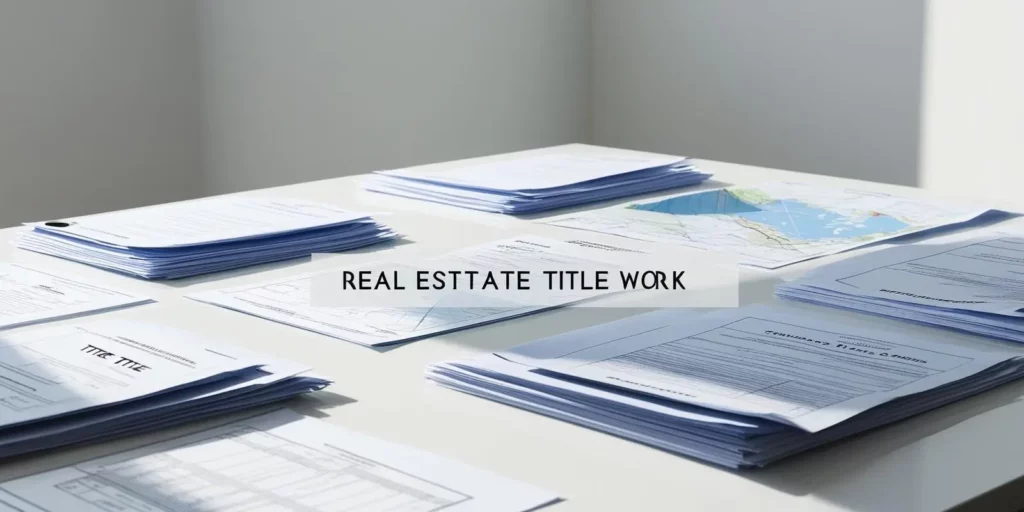
Table of Contents
- Selling Inherited Property with Multiple Owners
- Understanding Co-Ownership of Inherited Property
- Steps for Selling an Inherited Property with Multiple Owners
- How to Buy Someone Out of an Inherited House
- Can One Heir Force the Sale of Inherited Property?
- Selling Your Share of Inherited Property
- Key Challenges of Selling Inherited Property with Multiple Owners
- Why Selling to a Cash Buyer May Be the Right Solution
- Conclusion
- Frequently Asked Questions
Is It Possible to Sell Inherited Property with Multiple Owners?
Absolutely, you can sell an inherited property with multiple owners, but it requires cooperation because everyone listed on the title has equal rights to the home. Unlike selling your own property, this process can be more complex, since all heirs must agree before the sale can move forward. When everyone is on the same page, selling is simple: the house is sold, and the proceeds are divided fairly. But when disagreements arise, it can quickly turn into a stressful situation.
That’s why working with 3 Step Home Sale can make such a big difference. We buy inherited houses that need work, and we’re experienced in helping families with multiple heirs reach a smooth resolution. Our process is simple, fast, and transparent, allowing you to avoid complicated repairs, real estate fees, or drawn-out negotiations. Instead of letting the situation drag on, we help you and your co-owners turn the property into cash and move forward without added conflict.
Get An Offer Today & Pick Your Close Date
Fill Out the Form and Our Team Will Call With Your Offer
Understanding Co-Ownership of Inherited Property
When multiple heirs inherit a property, they typically become co-owners under a legal structure known as tenancy in common. In this arrangement, each heir holds a share of the property, which can lead to disagreements about how to manage or sell the home.
Common Scenarios Involving Co-Ownership:
- Conflicting goals: One sibling might want to sell the property immediately, while another may want to keep it as a rental investment or for personal use.
- Financial pressure: Some heirs may be in urgent need of cash, while others prefer to hold onto the property for its potential long-term value.
- Maintenance costs: Taxes, utilities, and repair bills can pile up, and disagreements may arise over who is responsible for paying these costs before the sale.
- Sentimental attachment: Heirs may feel an emotional connection to the property, especially if it was a family home. This can complicate the decision-making process.

Steps for Selling an Inherited Property with Multiple Owners
The process of selling an inherited property with multiple owners can be straightforward or complicated, depending on how well the co-owners cooperate. Let’s break down the process step by step.
1. Open Communication with Co-Owners
Open and honest communication is the first step. It’s important to gather all the heirs and discuss the future of the property. Keep in mind that everyone has a stake in the decision-making process, and any plans should take into account the financial and emotional priorities of each co-owner.
Tips for Productive Discussions:
- Ensure that everyone has a chance to voice their opinions.
- Consider hiring a neutral mediator if emotions are running high.
- Make sure all co-owners understand the potential financial and legal implications of keeping or selling the property.
2. Clear the Title
Before selling, ensure that the property has a clear title. The title must be free from liens, unpaid taxes, or unresolved estate issues. A probate court may need to be involved if the estate is still going through probate.

3. Get an Appraisal
An independent appraisal is necessary to establish the property’s fair market value. This helps ensure transparency and fairness when selling the property, dividing proceeds, or negotiating buyouts among heirs.
Why an Appraisal is Important:
- It prevents disputes by providing an unbiased valuation.
- It ensures that all heirs receive a fair share of the property’s worth.
- It’s essential for determining a buyout amount if one heir wants to retain the property.
4. Choose Between Listing or Selling for Cash
Once the co-owners have agreed to sell, you’ll need to decide whether to list the house traditionally or sell it for cash.
Traditional Sale:
This route involves listing the house on the market with the help of a real estate agent. It may take months to find the right buyer, and you may need to make repairs, clean up the property, and stage it for viewings.
Cash Sale:
Selling the property to a cash buyer simplifies the process. Cash buyers purchase homes as-is, so you won’t have to make any repairs or deal with delays caused by inspections or appraisals.
Get An Offer Today & Pick Your Close Date
Fill Out the Form and Our Team Will Call With Your Offer
How to Buy Someone Out of an Inherited House
If one or more heirs wish to keep the property while others want to sell, a buyout is a viable option. In a buyout, the heir(s) who want to keep the property compensate the other heirs for their share of the estate.
1. Get an Appraisal
An accurate appraisal is critical in determining the amount each co-owner should receive in a buyout. All heirs need to agree on the appraisal’s value to avoid disputes.
2. Calculate the Buyout Amount
The heir(s) interested in keeping the property will need to pay the other heirs the value of their respective shares. The buyout amount is typically calculated as follows:
| Heir’s Share | Appraised Value of Property | Buyout Amount |
| 25% | $400,000 | $100,000 |
| 50% | $400,000 | $200,000 |
| 33.3% | $400,000 | $133,200 |
This table shows how a property valued at $400,000 would result in different buyout amounts based on each heir’s share.
3. Secure Financing
The heir buying out the others may need to secure financing, such as a mortgage or personal loan, to cover the cost. Once financing is secured, the buyout amount can be paid, and the buying heir becomes the sole owner of the property.
4. Legal Transfer of Ownership
A real estate attorney should draw up a legal agreement that transfers ownership to the buying heir. The agreement must be signed by all parties and filed with the county to update the property’s deed.
Can One Heir Force the Sale of Inherited Property?
Yes, if the co-owners cannot agree on what to do with the property, one heir can force the sale of the property through a legal process called a partition action.
What is a Partition Action?
A partition action is a court-ordered sale of the property. This legal action is typically a last resort when heirs cannot come to an agreement on selling the house. The court steps in, orders the sale, and divides the proceeds according to the ownership percentages.

Pros and Cons of a Partition Action
- Pros:
- Forces a sale when other heirs are uncooperative.
- Ensures a legal and equitable division of the proceeds.
- Cons:
- It can be expensive, with legal fees often cutting into the proceeds.
- It can strain family relationships, making it a less-than-ideal option.
Selling Your Share of Inherited Property
If you own a portion of the inherited property but don’t want to go through the hassle of forcing a sale or buying out co-owners, you may wonder if it’s possible to sell your share. Legally, you can sell your ownership stake, but it’s not easy.
Challenges of Selling Your Share
Finding a buyer who is interested in purchasing a partial share of a home is difficult. Most buyers are not willing to purchase a fractional interest unless they intend to buy out the other owners or are real estate investors who specialize in such transactions.
Practical Options:
- Sell to Co-Owners: The simplest option is to offer your share to the other co-owners. They may be willing to buy your portion if they want to keep the property.
- Sell to an Investor: Some investors specialize in buying partial ownership of properties, but they typically pay less than the property’s market value.
Get An Offer Today & Pick Your Close Date
Fill Out the Form and Our Team Will Call With Your Offer
Key Challenges of Selling Inherited Property with Multiple Owners
Selling a property with multiple heirs is not without its challenges. Here are a few key obstacles you may encounter and how to overcome them:
1. Disagreements Among Heirs
Even in the best circumstances, heirs may have different opinions about what to do with the property. Emotional attachments, financial needs, and personal differences can all cause disputes. Hire a mediator or estate attorney to help guide negotiations. Clear communication is crucial, and a neutral third party can help bridge divides.
2. Unresolved Estate Issues
If the property has not gone through probate or has unresolved legal issues (such as unpaid taxes or liens), it may complicate the sale. Consult with an estate attorney to clear any title issues and ensure the property is legally marketable before proceeding.
3. Property Condition
Inherited homes may be older and require repairs or updates before they can be sold at a desirable price. Consider selling the property as-is to a cash buyer. They often purchase homes in any condition and can close quickly, allowing you to avoid costly repairs.

Why Selling to a Cash Buyer May Be the Right Solution
If you’re looking for a swift resolution to selling an inherited property, consider selling to a cash buyer. This option provides several significant benefits:
- Speed and Convenience – Cash buyers can often close in as little as seven days. This rapid turnaround can be a lifesaver for heirs needing to resolve financial obligations or move on with their lives.
- No Repairs Necessary – Cash buyers typically purchase homes as-is, meaning you won’t need to invest in repairs, renovations, or cleaning.
- Avoid Delays – With cash transactions, you skip the lengthy processes involved in traditional sales, such as buyer financing, inspections, and appraisals, allowing for a smoother transaction.
Conclusion
Selling an inherited property with multiple owners doesn’t have to be a complicated and drawn-out process. By understanding your options whether it’s negotiating a buyout, pursuing a partition action, or selling your house fast for cash, you can navigate the complexities of co-ownership and ensure a smoother transaction.
While inherited properties can be a source of conflict, they can also present opportunities for mutual benefit. By approaching the situation with clear communication and legal awareness, you can turn what may seem like a burden into a positive outcome for all involved.
If you’re ready to sell your inherited property quickly and without the headaches of traditional sales, contact 3 Step Home Sale today for a no-obligation cash offer. We’re here to help you every step of the way!
Frequently Asked Questions
Can I sell my house fast if I inherited it with multiple owners?
Yes, you can sell an inherited house with multiple owners as long as all heirs agree. Once the title is transferred and probate (if required) is complete, the property can be listed or sold. Many sellers choose a cash buyer to close quickly, often within days or weeks instead of months.
What happens if one heir doesn’t want to sell the property?
If one heir refuses to sell, the property cannot be sold by agreement alone since all owners must consent. Common solutions include negotiating a buyout, mediation, or filing a partition action in court. A judge can then order a forced sale and divide the proceeds fairly among all heirs.
Do we need probate before selling an inherited house?
In most cases, probate is required to transfer ownership before an inherited house can be sold. Once probate is complete, heirs can legally sell the property. Exceptions may apply if the home was in a trust or had a transfer-on-death deed.
How do heirs divide the money after selling an inherited property?
Sale proceeds are usually divided according to each heir’s ownership share or as outlined in the will. Debts, taxes, and liens are paid first, then the remaining money is split fairly. Heirs can also agree to adjust shares if one contributed more to repairs or expenses before the sale.
Still Have Questions? Visit our FAQ page.
Key Takeaways
- Co-ownership of inherited properties can lead to disagreements, legal complications, and delays in selling the house.
- Clear communication and understanding each heir’s rights are essential to move forward smoothly while selling inherited property with multiple owners.
- Options such as buyouts, partition actions, or selling the home for cash can help resolve disputes among heirs.
- Selling to a cash buyer can be the quickest and easiest solution, particularly for heirs looking to avoid repairs, long wait times, or legal hurdles.
We Buy Houses for Cash In:
Woodbridge | Falls Church | Vienna | Silver Spring | Germantown | Upper Marlboro
